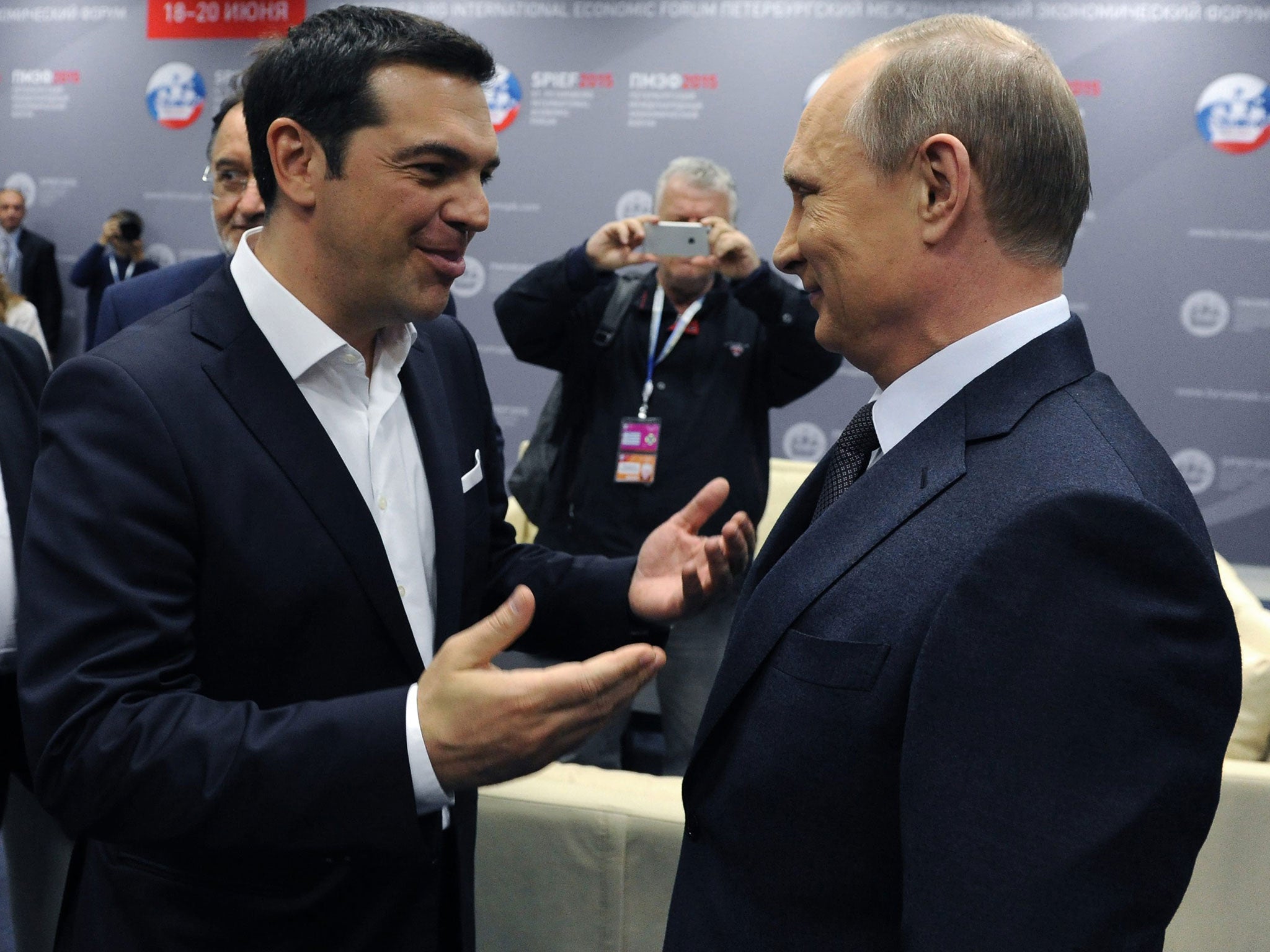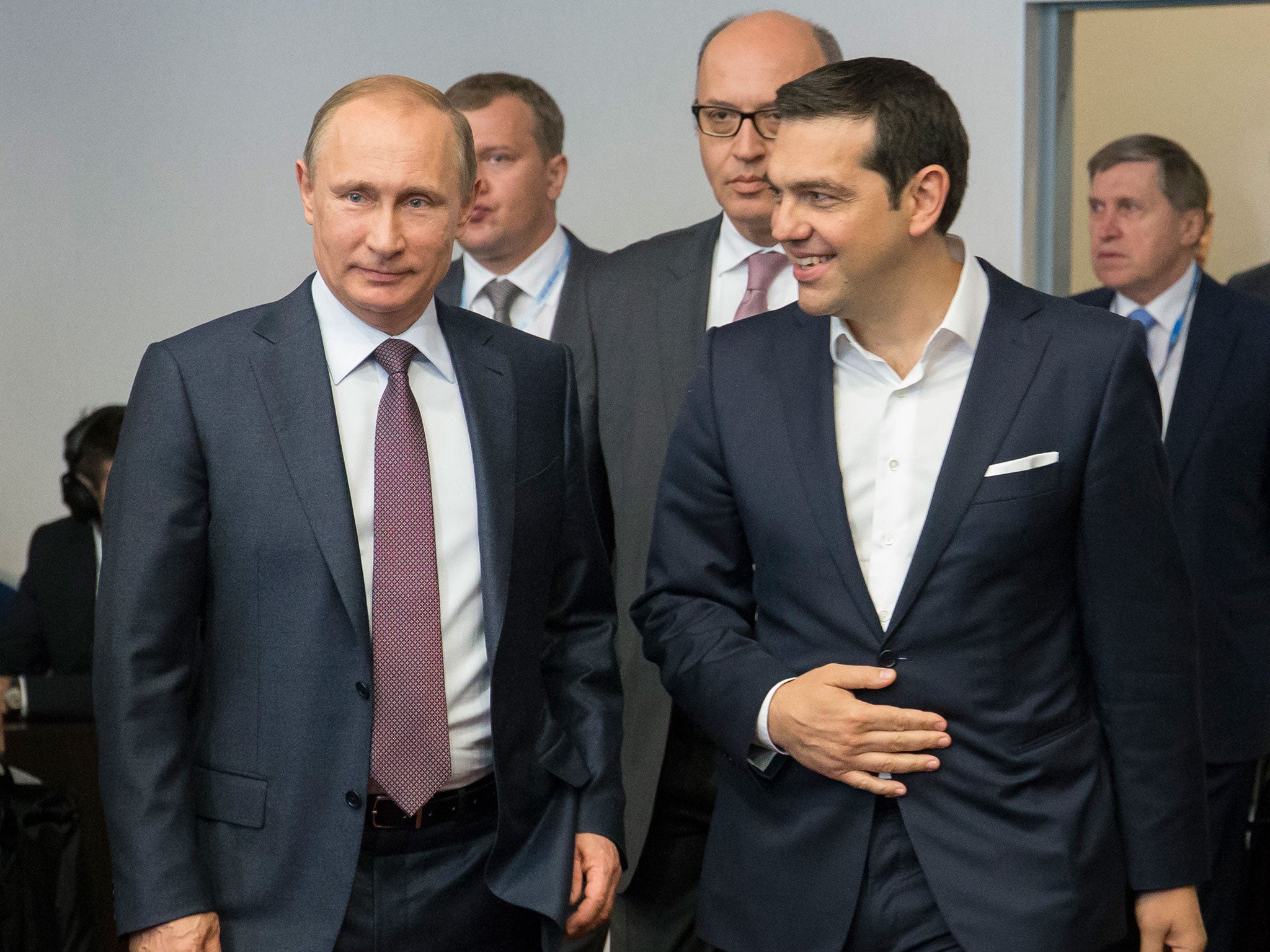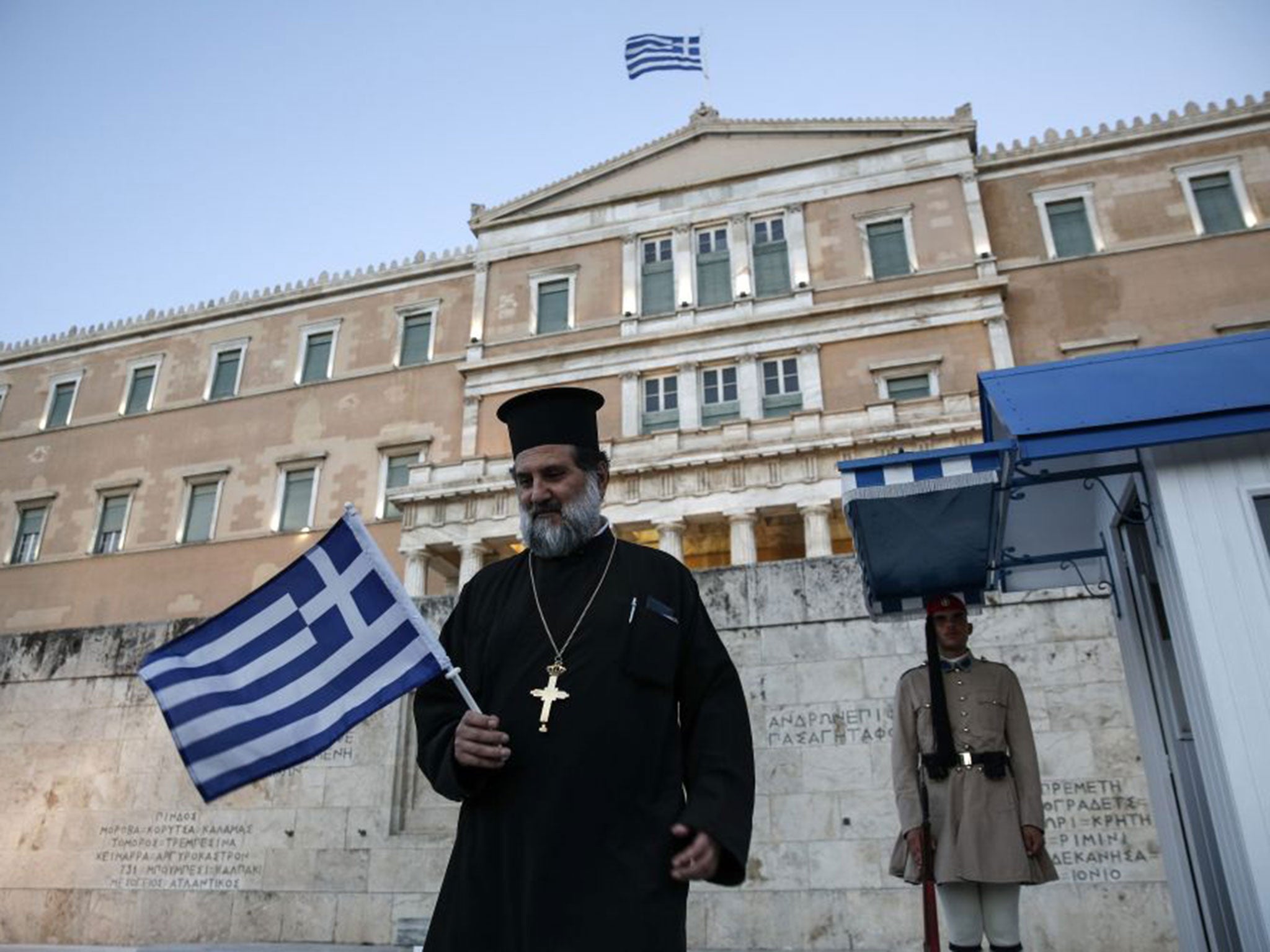Greece crisis: Alexis Tsipras woos Vladimir Putin as Greeks rush for their savings
Mr Tsipras suggests his country has other financial options outside Europe

Your support helps us to tell the story
From reproductive rights to climate change to Big Tech, The Independent is on the ground when the story is developing. Whether it's investigating the financials of Elon Musk's pro-Trump PAC or producing our latest documentary, 'The A Word', which shines a light on the American women fighting for reproductive rights, we know how important it is to parse out the facts from the messaging.
At such a critical moment in US history, we need reporters on the ground. Your donation allows us to keep sending journalists to speak to both sides of the story.
The Independent is trusted by Americans across the entire political spectrum. And unlike many other quality news outlets, we choose not to lock Americans out of our reporting and analysis with paywalls. We believe quality journalism should be available to everyone, paid for by those who can afford it.
Your support makes all the difference.Greece’s Prime Minister has attacked the “delusions” of Europe and hinted his country could find a “safe port” in Russia if it crashes out of the eurozone at the end of the month.
Alexis Tsipras was sharing a platform with Vladimir Putin at the St Petersburg Economic Forum the day after “cash for reforms” negotiations between Greece and its eurozone creditors collapsed, bringing ever closer a catastrophic default on 30 June.
There were reports of a further step-up in the pace of savings withdrawals from Greek banks, and the European Central Bank (ECB) was forced to increase its emergency lending to the country’s tottering financial sector.
Mr Tsipras described Russia as one of “Greece’s most important partners” while lamenting the EU sanctions imposed on his host last year. And in words likely to be interpreted as a stark warning to the country’s creditors that Greece may make an alliance with Russia if the country exits the eurozone, Mr Tsipras suggested his country had other financial options outside Europe.
“We are at the centre of a storm, of a whirlpool. But you know we live near the sea – we are not afraid of storms, we are not scared of open seas, of going into new seas. We are ready to go into new seas to reach new safe ports,” he said. Russia has been seeking to cultivate Greece and other smaller European states in order to divide the EU, which has so far shown a united response to Russia’s aggression in Ukraine. There have been fears in some European capitals that Greece could veto future rounds of sanctions on Moscow if it falls out of the single currency yet remains in the EU.

In a response to Mr Tsipras’ coded overtures Russia’s Deputy Prime Minister, Arkady Dvorkovich, said his country would “consider” financial support for Greece. “The most important things for us are investment projects and trade with Greece. If financial support is needed, we will consider this question,” he said.
However, some analysts have cast doubt on the idea that Russia has the financial resources to help Greece. As expected, the two countries signed an agreement to construct a new pipeline that will bring Russian gas to Europe across Greek territory, bypassing the Ukraine.
Mr Tsipras made no apology for accepting the invitation to speak in St Petersburg. “I know many are asking themselves why am I here and not in Brussels? Why am I not participating in negotiations there?” he told the audience. “I am here because I believe it is the role of country that is seeking to explore all its potential to reach success in every area.”

Greece is due to pay back €1.6bn to the International Monetary Fund on 30 June, and Athens officials have admitted they will not be able to make it unless the eurozone releases a €7.2bn bailout payment in the coming days. A default would see Greek banks cut off from emergency support from the ECB, which would plunge the country into a financial crisis.
The ECB has approved a €2bn increase in emergency loans to the country’s banks amid reports of yet more savings withdrawals by Greek households. The Bank of Greece was forced to deny rumours that its banks will be unable to open next week.
An emergency summit of eurozone leaders will convene in Brussels on 22 June. European Council President Donald Tusk said that the summit would not provide a “magic solution” for Greece. “The game of chicken needs to end, and so does the blame game. Because this is not a game and there is no time for any games,” he said.
Mr Tsipras criticised Europe’s “delusions” about its place in the world. “We in Europe were delusional for some time. We believed we were the centre of the world,” he said. “However, the economic centre of the planet has shifted. There are new emerging forces that are playing a more important role geopolitically and economically.”
Join our commenting forum
Join thought-provoking conversations, follow other Independent readers and see their replies
Comments